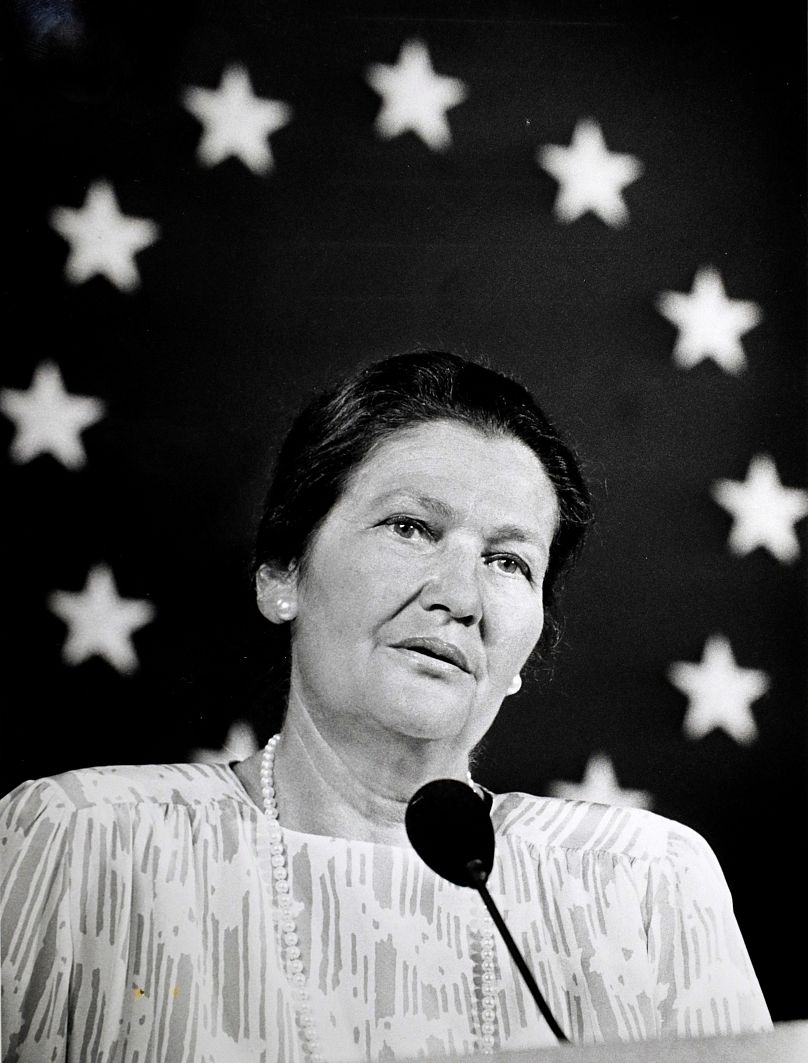The former minister, Holocaust survivor, and EU president is only the fifth woman to be buried in the secular mausoleum.
The former French minister and Holocaust survivor Simone Veil, who became the symbol of forgiveness, was honoured at Paris' Panthéon on Sunday.
Veil, who also championed the 1974 law legalising abortion in France, will be laid to rest at the Panthéon, a year after her death at the age of 89.
She is only the fifth woman to be buried in the secular mausoleum, which has become the final resting place for the country’s most illustrious citizens. She joins the company of Victor Hugo, the philosopher Voltaire, and Marie Curie amongst others.
Veil's death sparked a wave of emotion last year, with thousands signing a petition that requested she be buried in the Panthéon.
Up to 1,000 people were invited to attend Sunday's memorial at which the French republic mustered all its pomp for a solemn ceremony rich in symbols.
Simone Veil in life:
In 1944 Veil was arrested in Nice by the occupying German forces when she was 16 years old, days after passing her baccalaureate. She and her family were deported to the Nazi concentration camp at Auschwitz-Birkenau and were later moved to the second camp at Bergen-Belsen. There, Veil’s mother Yvonne died of typhus before British forces liberated the camp in 1945. Her brother and father also died at the concentration camps.
Veil returned to France after the war, where she studied law and political science at Sciences Po university. She began campaigning for European reconciliation and women’s rights. During her time as health minister in 1974, she convinced the Assemblée Nationale to legalise abortion. Many see it as her biggest political victory at a time when France was considered a fundamentally Roman Catholic country.
In 1979, Veil became the first directly elected president of the European Parliament. She is seen as a great patron of Europe. Her hero's burial comes at a time when the continent is dividing.
Veil's final journey
Sunday's ceremony featured many symbols of the EU and the Holocaust. Veil and her husband of 67 years, Antoine, a high-ranking civil servant who died in 2013, were taken to the Panthéon from the Holocaust memorial in the city’s Jewish district in the Marais. Their coffins were draped with the French flag to allow members of the public to pay their tributes.
They were then carried by members of the Republican Guard on a blue carpet, which was chosen by the presidential palace to represent “peace, the United Nations, and Europe.” They entered the Panthéon to the song Nuit et Brouillard by Jean Ferrat, a popular hymn that represents those persecuted for opposing the Nazi regime and the victims of the concentration camps.
Addressing the crowds, French president Emmanuel Macron said: "France loves Simone Veil and loves her for her struggles."
Macron added, "we wanted Simone Veil to enter the Panthéon without waiting for generations to pass so that her battles, her dignity, and her hope remain a compass in these troubled times."
On Monday, the coffins of Veil and her husband will be placed in the crypt, next to the French resistance hero Jean Moulin and the EU's founding father Jean Monnet.













